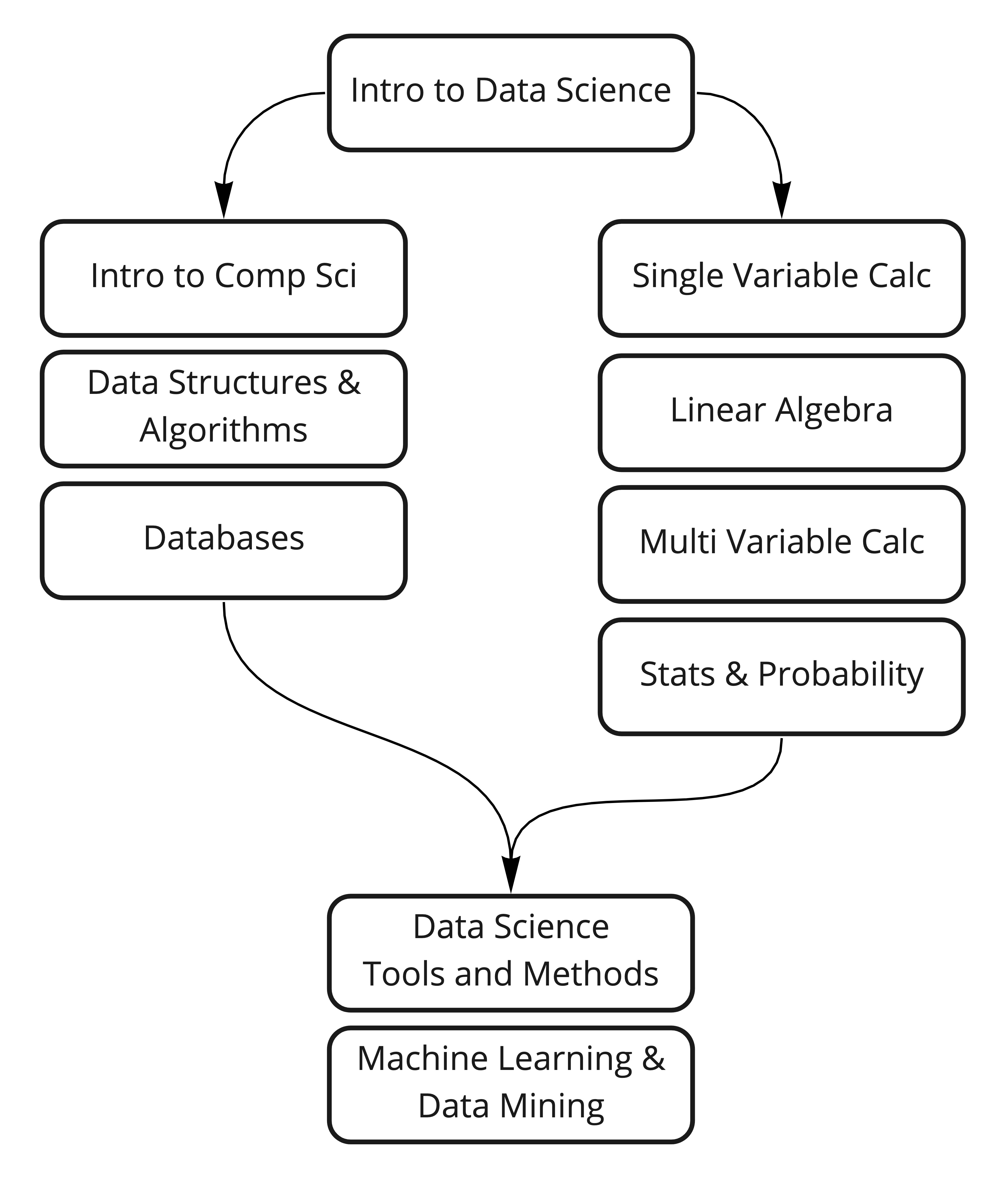It might be helpful to have a direct link to the guidelines so it's easier to read and comment: https://www.amstat.org/asa/files/pdfs/EDU-DataScienceGuidelines.pdf
Very short and nice read, just 16 pages.
Looks like you already made all the necessary course changes in the pull request. All the links are alive and the courses cover the Key Competencies on Page 6, and the Six Main Subject Areas & Outline on Page 9 very well. Really excellent work!
The topic progression path in the pull request looks somewhat different than the possible path in Figure 1, Page 12 of the guidelines. I think it's fine, but maybe you could explain a little bit for those that are curious?
One question to which I do not see an immediate answer is, where would the "Capstone Experience" and "Course in an outside discipline" mentioned in the Outline on Page 9 come from? Are they contained in some of the courses in the curriculum?
By the way I don't know much about data science at all, and I don't have a horse in this race. Just trying to be helpful.

Problem: The curriculum has not been maintained and does not represent best practice.
Duration: 2020-08-31
Background: OSSU recommends courses that would constitute an undergraduate major in Data Science. It is our responsibility to ensure that we follow best practice. To do so, we must bring the curriculum into alignment with external guidelines. A candidate set of guidelines has been identified and previously proposed.
In 2017, the Annual Review of Statistics and Its Application published the report "Curriculum guidelines for undergraduate programs in data science." The report was authored by “25 undergraduate faculty from a variety of institutions in the United States, primarily from the disciplines of mathematics, statistics, and computer science.” It had a goal of providing “structure for institutions planning for or revising a major in data science.”
The current state of OSSU Data Science is one of disrepair. The curriculum has had 1 change in 3 years. That change deleted a link to a broken application. But there remained many links to courses that are no longer offered. A list of these can be found here. Prospective students have posted in the issues asking if the Data Science curriculum is still maintained. Updating the curriculum must ensure that all courses are available for students.
Proposal: OSSU Data Science should adopt “Curriculum guidelines for undergraduate programs in data science” (CGUPDS) as our guidelines. The curriculum should be updated to match. The exact changes can be reviewed in this pull request.